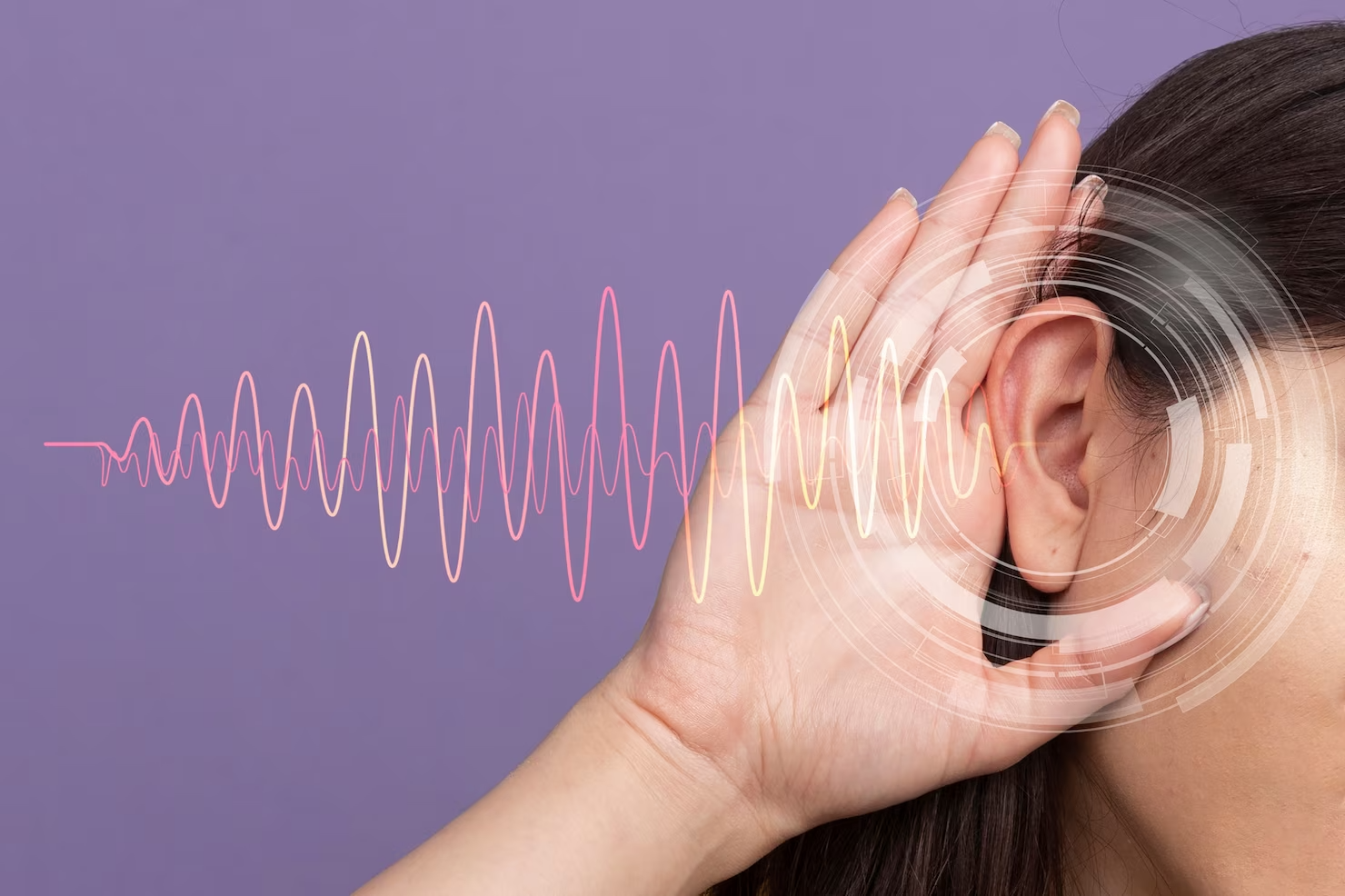In the field of audiology, the link between hearing and balance is an important one that is often forgotten. Vertigo is a disease that causes people to feel dizzy and off-balance, and it can be hard for many people to find effective ways to treat it. A common question in this situation is whether hearing aids, which are mostly made to help people hear better, could also help with dizziness.
There isn't a simple yes or no answer. Instead, it depends a lot on what is causing the dizziness in the first place. In some cases, like when dizziness is caused by a problem with the inner ear, hearing aids might be able to help with the symptoms.
The Link Between Balance and Hearing
The vestibular system in our inner ear helps us keep our balance and figure out where we are in space. This system works with our eyes and bones to help us keep our balance, figure out where we are in space, and move around without falling over.
The fact that our hearing system and our balance system are both in the inner ear is an interesting fact. So, situations that make it hard to hear might also make it hard to keep your balance, and vice versa.
Vertigo and a loss of hearing
Inner ear problems, like Ménière's disease, vestibular neuritis, or benign paroxysmal positional vertigo (BPPV), are often linked to dizziness. Many of these conditions can also cause hearing loss because an inflamed or broken inner ear can make it hard to keep your balance and hear.
For example, Ménière's disease can cause signs like dizziness, ringing in the ears, and hearing loss that comes and goes. In these situations, treating the hearing loss might also help with the dizziness symptoms.
What hearing aids do
Hearing aids are mostly made to make sounds louder and help people hear better, but in some cases, they could also help people with dizziness. If the vertigo is caused by a disease that also makes you hard of hearing, improving your hearing might help with some of the symptoms.
Hearing aids can help with dizziness in two main ways:
Hearing aids can improve spatial awareness by making sounds louder and making it easier to figure out where they are coming from. This can help the person feel less off balance and more stable.
2.Treatment of Related Conditions: In conditions like Ménière's disease, treating the hearing loss with hearing aids might help treat the overall condition, which could make vertigo events less frequent and less severe.
Notes and Things to Think About
But it's important to remember that hearing aids are not a cure for vertigo. They may help, but they are not a fix. They can't directly deal with problems in the system that helps you keep your balance. Hearing aids should be thought of as part of a larger treatment plan for dizziness, not as a stand-alone cure.
If you are feeling dizzy and losing your hearing, you need to talk to a doctor right away. They can give you a thorough diagnosis and point you in the direction of the best treatment, which could be hearing aids, physical therapy, medications, or even surgery, based on what's going on.
Conclusion
In short, hearing aids might help with vertigo, especially if it's caused by a disease that makes you lose your hearing. They might help improve spatial awareness and help manage the situation as a whole, which would give some relief.
It is very important to understand how our hearing and balance systems work together. This information helps us have realistic ideas about how hearing aids can help treat vertigo. As medical technology keeps getting better, more study may find new ways in which these devices can help improve our hearing and balance as a whole.
There isn't a simple yes or no answer. Instead, it depends a lot on what is causing the dizziness in the first place. In some cases, like when dizziness is caused by a problem with the inner ear, hearing aids might be able to help with the symptoms.
The Link Between Balance and Hearing
The vestibular system in our inner ear helps us keep our balance and figure out where we are in space. This system works with our eyes and bones to help us keep our balance, figure out where we are in space, and move around without falling over.
The fact that our hearing system and our balance system are both in the inner ear is an interesting fact. So, situations that make it hard to hear might also make it hard to keep your balance, and vice versa.
Vertigo and a loss of hearing
Inner ear problems, like Ménière's disease, vestibular neuritis, or benign paroxysmal positional vertigo (BPPV), are often linked to dizziness. Many of these conditions can also cause hearing loss because an inflamed or broken inner ear can make it hard to keep your balance and hear.
For example, Ménière's disease can cause signs like dizziness, ringing in the ears, and hearing loss that comes and goes. In these situations, treating the hearing loss might also help with the dizziness symptoms.
What hearing aids do
Hearing aids are mostly made to make sounds louder and help people hear better, but in some cases, they could also help people with dizziness. If the vertigo is caused by a disease that also makes you hard of hearing, improving your hearing might help with some of the symptoms.
Hearing aids can help with dizziness in two main ways:
Hearing aids can improve spatial awareness by making sounds louder and making it easier to figure out where they are coming from. This can help the person feel less off balance and more stable.
2.Treatment of Related Conditions: In conditions like Ménière's disease, treating the hearing loss with hearing aids might help treat the overall condition, which could make vertigo events less frequent and less severe.
Notes and Things to Think About
But it's important to remember that hearing aids are not a cure for vertigo. They may help, but they are not a fix. They can't directly deal with problems in the system that helps you keep your balance. Hearing aids should be thought of as part of a larger treatment plan for dizziness, not as a stand-alone cure.
If you are feeling dizzy and losing your hearing, you need to talk to a doctor right away. They can give you a thorough diagnosis and point you in the direction of the best treatment, which could be hearing aids, physical therapy, medications, or even surgery, based on what's going on.
Conclusion
In short, hearing aids might help with vertigo, especially if it's caused by a disease that makes you lose your hearing. They might help improve spatial awareness and help manage the situation as a whole, which would give some relief.
It is very important to understand how our hearing and balance systems work together. This information helps us have realistic ideas about how hearing aids can help treat vertigo. As medical technology keeps getting better, more study may find new ways in which these devices can help improve our hearing and balance as a whole.


